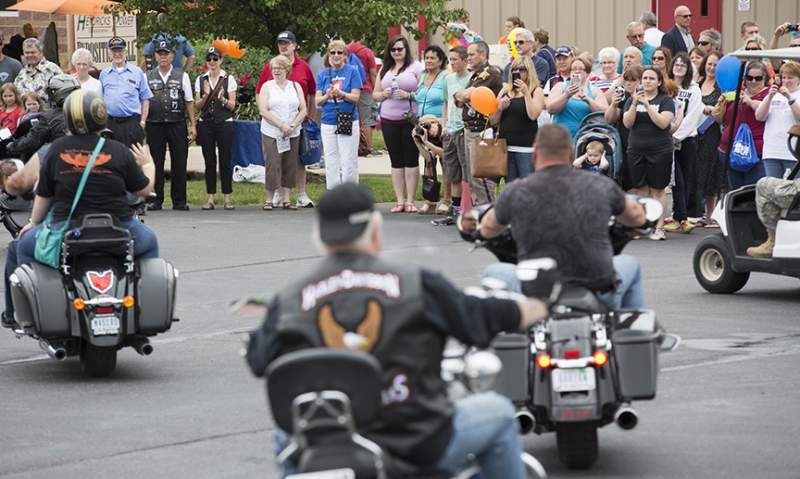
Today's generation of veterans does not wait for the news, answers to research questions, or driving directions. They click a mouse, expect instant results, and usually get them.
An 18-year-old E-3 was born long after the dawn of the Internet era. She was in the fifth grade when al-Qaeda terrorists hijacked U.S. jets and slammed them into the World Trade Center and the Pentagon, igniting a war like none other before it - a war that would be fought with global positioning systems, unmanned drones and high-tech command centers, as well as pilots, sailors, medics and boots on the ground.
At age 12, she likely had a cell phone, an e-mail account and friends in online chat rooms. As teens, she and her friends moved to MySpace and Facebook pages. By 18, she had a long list of favorite Web sites and blogs, if she had not started one of her own. Her music was purchased one song at a time through a USB cord rather than at a record store. Today, as she serves her country half a world away, this member of our armed forces knows she is never more than an e-mail, tweet or status update away from her folks. She can Christmas shop in America, from Baghdad. She can also join The American Legion online.
Today's generation of veterans does not wait for the news, answers to research questions, or driving directions. They click a mouse, expect instant results, and usually get them. The nightly news, the morning paper and the monthly magazine have evolved into forums for analysis of events reported in real time to audiences empowered to instantly add their own thoughts in the comment fields below. Our young E-3 sees her telephone as a news channel. Text, to her, is a verb.
These developments present exciting opportunities for The American Legion. National Headquarters is opening dynamic new channels of communication not just for the newest generation of veterans but those of all eras. I am reminded of the self-described "oldest military blogger" who posts online his firsthand recollections of the Normandy invasion, fulfilling a niche for World War II veterans in the blogosphere. Who would have thought? Korean War and Vietnam War veterans have been reuniting online for years, through Web groups, e-mail, blogs and social media. For those of the most recent war eras, instant communication and e-commerce are a way of life.
That's the way it is for me. Within seconds of my acceptance speech at the 91st National Convention of The American Legion in Louisville, I alerted my followers on Twitter from the stage. Two hours later, a new Web site to help me better communicate with you - and vice versa - went live. The Legion Facebook page, and my own, have been buzzing in recent weeks, including messages from American Legion posts reporting how they are using electronic communications to increase visibility and grow membership in their communities. That's what I like to hear.
An all-new national Web site will be up by Veterans Day, with many opportunities for Legionnaires and prospective members to learn and engage with our programs and services. The site aims to be both an information source and window to one another, with links to Twitter, Facebook, YouTube, and department and post sites. The goal is to open all channels of communication. I urge all of our members to log on and join me at the all-new www.legion.org.
The new generation of veterans is here now, not coming soon, and we're all in it.
- Magazine

